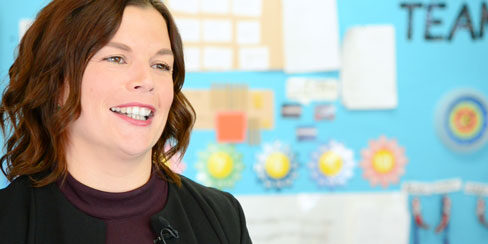Kerry Reid, the head of school at Westwood Primary in Lowestoft, part of the Active Learning Trust, oversees a school in a challenging catchment area. With 55% of children receiving pupil premium and high unemployment rates locally, many students enter school unprepared to learn.
Recognising the need for change in Year 1, it was clear that previous methods were not achieving the desired progress and impact. A thorough review of autumn term lesson observations, Year 1 data, and Ofsted reports highlighted strengths in early years, where the school had received a good Ofsted rating and two outstanding inspections. The focus was on identifying what was missing as children transitioned to Year 1.
Lesson observations revealed teachers’ frustrations with Year 1 students’ inability to sit still and concentrate. It became evident that the issue lay in the curriculum, not the students. Observations and data showed that while children made rapid progress from nursery to reception, there was a plateau in Year 1, indicating the curriculum was not right.
To address this, the early years environment was introduced into Year 1, utilising continuous provision and effective learning characteristics. However, this approach also fell short as students reverted to reception-level learning. Seeking support from Early Excellence, the school engaged in the EBL training project, receiving comprehensive guidance on environment, adults, curriculum, and planning.
The first training session was a success, but an eye-opener, revealing the need for a cultural and ethos shift rather than mere curriculum tweaks. The school development plan was updated to integrate EBL from nursery through to Key Stage 1, with aspirations to extend it all the way to Year 6. The training emphasised aligning the Key Stage 1 curriculum with children’s needs, ensuring the environment maximised learning opportunities.
The focus was initially on the classroom environment in Year 1, before extending to the Key Stage area. The emphasis was on continuous provision planning, guided by Early Excellence, beginning with the planning phase followed by resourcing. This approach quickly led to an improved environment where increased involvement was observed, with children actively engaged and leading their own learning, and adults also showing high levels of involvement. This facilitated very rapid progress, with children able to apply literacy and maths skills across various activities.
However, it soon became apparent that the children were not being given enough time to benefit from the environment. During a third session with Early Excellence, the team reviewed timetabling and the daily schedule to minimise interruptions to the children’s learning. Adjustments were made, including the removal of some break times, assemblies, and discrete PE teaching, in favour of sustained periods of learning through play.
By the spring term, significant progress was evident with no signs of plateauing. The staff really showed the benefits of the Early Excellence training, initially for two teachers, and subsequently extended to teaching assistants (TAs) and the entire team. This integrated team approach now supports the growth into Key Stage 2.
The impact of these changes was substantial, but concrete data was required. When Ofsted visited in February, having already participated in three sessions with Early Excellence, there were initial concerns about their reception of the changes. However, by the end of the second day, Ofsted was supportive, noting in the report that children were highly involved, leading their own learning, that progress was visible and visible in their books and that parents also showed strong support for the new ethos.
Data from the summer term confirmed the effectiveness of the changes. Previously, around 60% of children were at the expected level at the end of Year 1; this figure had risen to 80% (for the current Year 2 cohort). The phonics test results, which had fluctuated in the past around national level, now showed a significant improvement to 87%.
By the summer term, there was clear evidence that the new approach was working. Observations, progress data, and attainment data all confirmed this. Consequently, the rollout of the programme began in Year 2. Early Excellence provided support to leaders and the Year 2 team, and by September, the new approach was fully implemented. The programme is now being extended into Year 3 with continued support from Early Excellence. It has been a huge success.
The success of the initiative has led to a complete ethos and culture change within the school, reflected in the updated vision and ethos on the school’s website, and the overwhelmingly positive response from parents. The plan is to continue this approach and eventually implement it through to Year 6!
To enquire about support to change your KS1, contact Early Excellence or e-mail nikki@earlyexcellence.com

